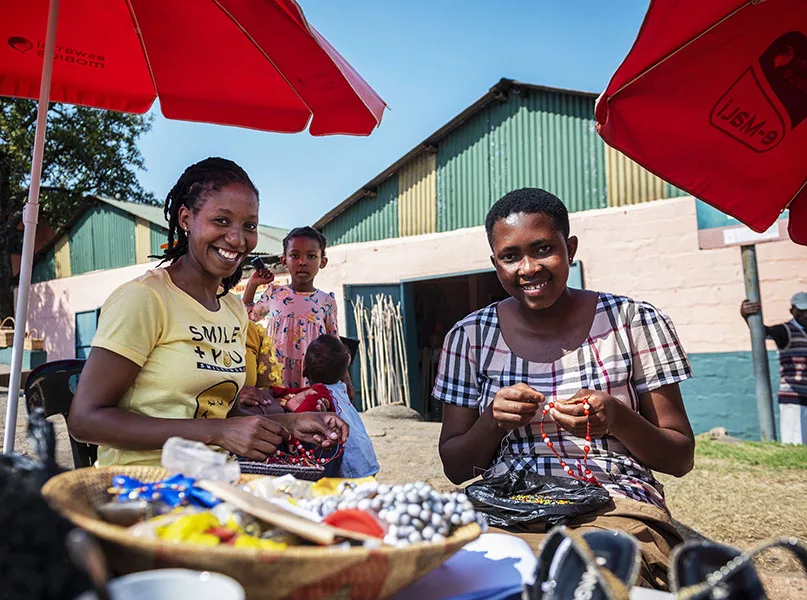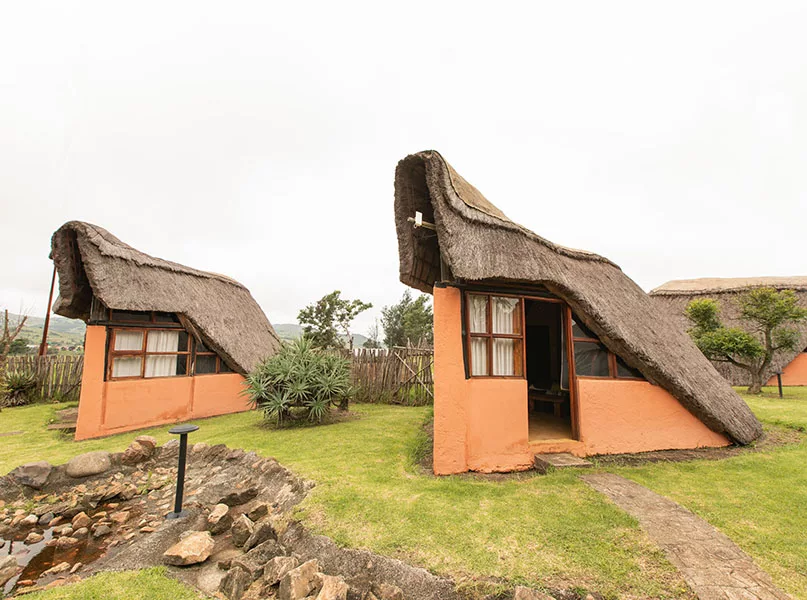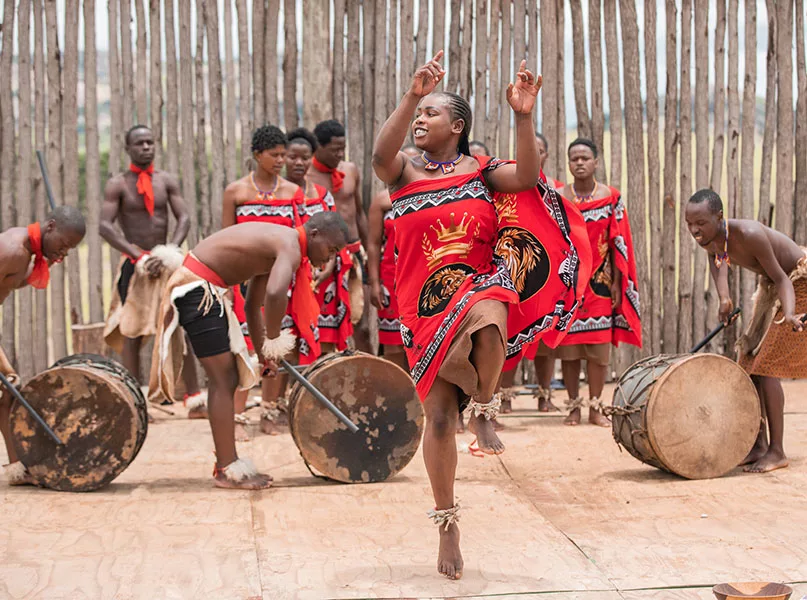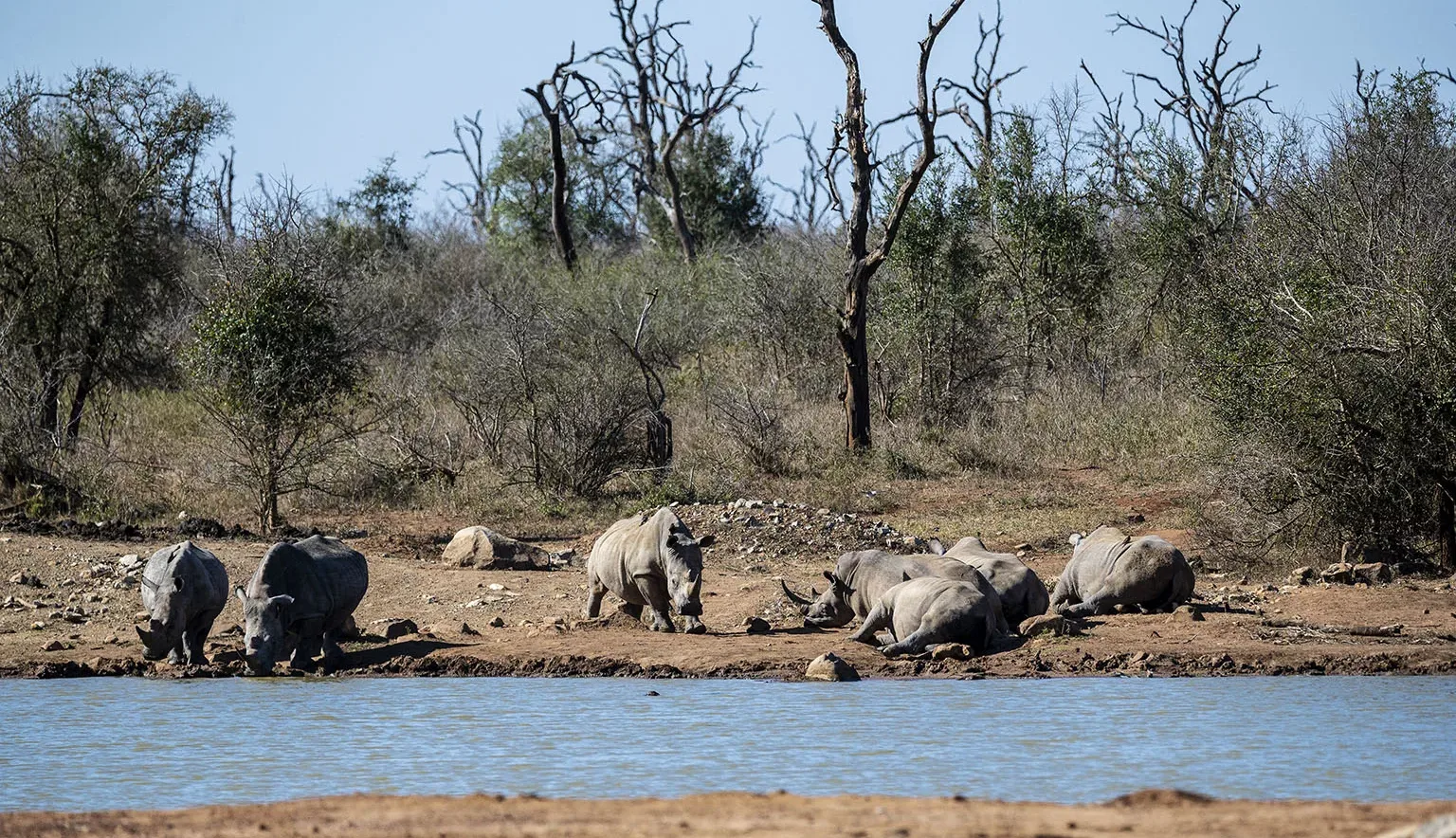We speak to Vusie Norman Dlamini, CEO of the Eswatini Tourism Authority, who outlines the organisation’s current goals, the role it plays in tourism promotion and legislation, and its hopes for the future.
Q&A WITH ESWATINI TOURISM AUTHORITY
Firstly, can you outline the origins of the Eswatini Tourism Authority?
Vusie Norman Dlamini, CEO (VND): The African nation of Swaziland changed its name to Eswatini in April 2018 as announced by His Majesty King Mswati III.
Although the country gained independence from Great Britain in 1968, it did not change its name at the time. Eswatini’s monarch also highlighted how the new name would avoid confusion with Switzerland in Europe.
The Eswatini Tourism Authority (ETA) was established through the Eswatini Tourism Authority Act, 2001. Like all parastatals regulated through the Public Enterprises (Control and Monitoring) Act, 1989, the authority is a Category A public enterprise overseen by government. It is also a body corporate with perpetual succession and a common seal, capable of suing and being sued in its name.
The objectives of the ETA are to develop the tourism sector as a national priority in an environmentally sustainable and culturally acceptable manner, whilst coordinating and facilitating the implementation of government policies and tourism strategies.
It also seeks to market Eswatini as a tourism destination by providing a platform for industry stakeholders and encouraging, facilitating, and promoting local and foreign investment in tourism.
Finally, it ensures the positive contribution of tourism to local socioeconomic development and the continued improvement of quality of life in Eswatini.

What are your organisation’s current goals and how do you plan to achieve them?
VND: Primarily, the ETA’s goal is to position Eswatini as a globally recognised destination of choice. The authority also aims to sustainably develop and promote the tourism industry as one of the leading contributors to gross domestic product (GDP) and wealth creation in the country.
According to our 2022-27 corporate strategy, we should attract more than two million tourists by 2027, increasing tourism-related revenue to more than SZL2 billion during the same period.
Why, in your opinion, should someone visit Eswatini?
VND: I believe someone should visit Eswatini for its untamed nature, from the majestic Hlane Royal National Park to the lush Mlilwane Wildlife Sanctuary. Complete with the Big Five, Eswatini offers incredible wildlife encounters.
Tourists are invited to explore local markets and interact with friendly locals to gain a deep appreciation for the Swati way of life.
Alternatively, hiking through the stunning landscapes of Emvembili, Jilobi, and Sibebe, to name a few, is an unmissable experience, whilst Big Bend offers thrilling safaris and white water rafting on the Usuthu River.
The option to unwind at luxurious accommodations such as Silverstone Lodge in Mbabane is also an attractive prospect, as you can indulge in spa treatments at White Orchid Spa and enjoy the tranquillity of the countryside.
Eswatini is a country defined by its contrasts, such as the juxtaposition of modern developments and ancient traditions, the blend of bustling urban life and serene rural landscapes, and the harmonious coexistence of wildlife and human communities.
Here, you can encounter the wild, immerse yourself in culture, or find tranquillity – all in one place.
In short, Eswatini offers a genuine, authentic travel adventure and a chance to escape the crowds and experience Africa in its purest form.
“Eswatini’s appeal lies in its ability to cater to a wide range of interests and audiences, making it a suitable destination for solo travellers, couples, families, and groups of friends alike”
Vusie Norman Dlamini, CEO, Eswatini Tourism Authority

What type of travellers does Eswatini typically attract?
VND: Eswatini typically attracts a diverse range of travellers, highlighting the country’s versatility.
Firstly, there are those interested in immersing themselves in rich cultural experiences, witnessing traditional ceremonies, and exploring local arts and crafts.
Then, there are the adventure seekers who enjoy outdoor activities such as hiking, safaris, white water rafting, and exploring the country’s diverse landscapes.
Alternatively, relaxation and wellness travellers seek a peaceful retreat, spa treatments, and opportunities to unwind in the country’s stunning natural surroundings. They might stay in high-end accommodations such as the Hilton Garden Inn, Summerfield Botanical Garden and Exclusive Resort, or The Royal Villas, which all offer personalised experiences and exclusive access to the country’s best offerings.
Meanwhile, eventgoers enjoy attending festivals such as Makoti Festival, Standard Bank Luju and Lifestyle Festival, and the internationally renowned MTN Bushfire Festival, as well as other concerts and cultural events such as Incwala (Kingship Ceremony), Umhlanga (Reed Dance), and Buganu (Marula Festival).
As such, Eswatini’s appeal lies in its ability to cater to a wide range of interests and audiences, making it a suitable destination for solo travellers, couples, families, and groups of friends alike.
What does the nation offer in terms of sustainable or eco-friendly travel experiences?
VND: Eswatini is increasingly recognising the importance of sustainable tourism. While still in its early stages of development, the country has begun to offer a number of opportunities for eco-friendly travel.
For example, community-based tourism seeks to involve local communities, ensuring benefits are shared equitably whilst contributing to local development. Notable community-based tourism initiatives can be found in Mahamba, Matsamo, Emvembili, Shewula, and Mhlumeni.
In addition, Eswatini’s national parks and game reserves prioritise conservation efforts, offering visitors the chance to experience wildlife and natural habitats while supporting protection initiatives.
Meanwhile, many tourism experiences focus on preserving and promoting Swati culture such as the Mkhaya Game Reserve, Sibebe Resort, and Mantenga Cultural Village. Official cultural centres at these sites allow visitors to connect with local traditions and support cultural heritage.
Eco-lodges and sustainable accommodations, although limited, are growing in numbers. For example, Mhlumeni Bush Camp and Shewula Bush Camp focus on sustainable practices.
Furthermore, activities such as hiking, biking, abseiling, and white water rafting often promote responsible outdoor behaviour with minimal environmental impact.
As such, the ETA has clearly identified sustainable tourism as a priority. Its goals include balancing economic growth with environmental protection and finding ways to develop the tourism industry while reducing harm to the environment.
It also seeks to empower local communities by involving them in tourism initiatives that promote responsible practices. These include educating tourists and industry stakeholders about sustainable travel and encouraging environmentally-friendly behaviours.
Finally, the authority is working to develop new tourism products that align with its sustainability principles.
“Eswatini offers a genuine, authentic travel adventure and a chance to escape the crowds
Vusie Norman Dlamini, CEO, Eswatini Tourism Authority
and experience Africa in its purest form”

What recent trends are currently transforming tourism in Eswatini?
VND: Eswatini, like many African nations, is experiencing a dynamic shift in its tourism landscape. Several trends are reshaping the industry, and the ETA is actively adapting to capitalise on these opportunities.
A global emphasis on environmental conservation and social responsibility is strongly influencing travel choices. This trend is particularly evident in Eswatini with its focus on community-based tourism and wildlife conservation.
In addition, travellers are increasingly seeking authentic and immersive experiences, which has led to a growth in adventure tourism, cultural tours, and culinary experiences.
Meanwhile, technology continues to revolutionise the tourism industry, and we have seen online booking platforms, social media marketing, and digital payments becoming essential tools.
The pursuit of well-being has also driven a surge in wellness tourism, and Eswatini’s natural beauty and cultural practices align well with this trend.
Following the COVID-19 pandemic, domestic tourism gained prominence. As such, many countries, including Eswatini, are focusing on developing their domestic tourism markets.
Furthermore, Triland, a collaborative effort between Eswatini, Mozambique, and the South African province of Mpumalanga, holds immense potential to transform tourism in the three countries.
Pooling resources between the ETA, Mpumalanga Tourism and Parks Agency (MTPA), and Mozambique Tourism Board (Inatur) to market this region as a unified destination, Triland is an initiative that promises to significantly enhance tourism.
Through this union, each Triland member country becomes more attractive as a destination for international tourists, leading to increased visitor numbers. Joint marketing efforts also tap into newer markets and attract a wider range of tourists.
To maximise the benefits of the Triland initiative, Eswatini focuses on developing unique tourism products, investing in infrastructure, and promoting the country’s cultural heritage.
By working closely with its partners, Eswatini positions itself as a key player in growing Southern African tourism market.
Are you optimistic about the future of the tourism industry in Eswatini?
VND: There is overall optimism that tourist numbers will increase going forward.
Although still below the figures experienced before the COVID-19 pandemic, by March 2024, the number of tourists was already at about 900,000, just shy of the 1.2 million experienced pre-pandemic.
Together with aggressive tourism and marketing promotions, as well as other interventions being implemented across Eswatini, our optimism extends.
We also anticipate an increase in the length of time visitors might stay. Currently, the average is two nights, and we hope to see this increase to four nights within the next 18 months.






























